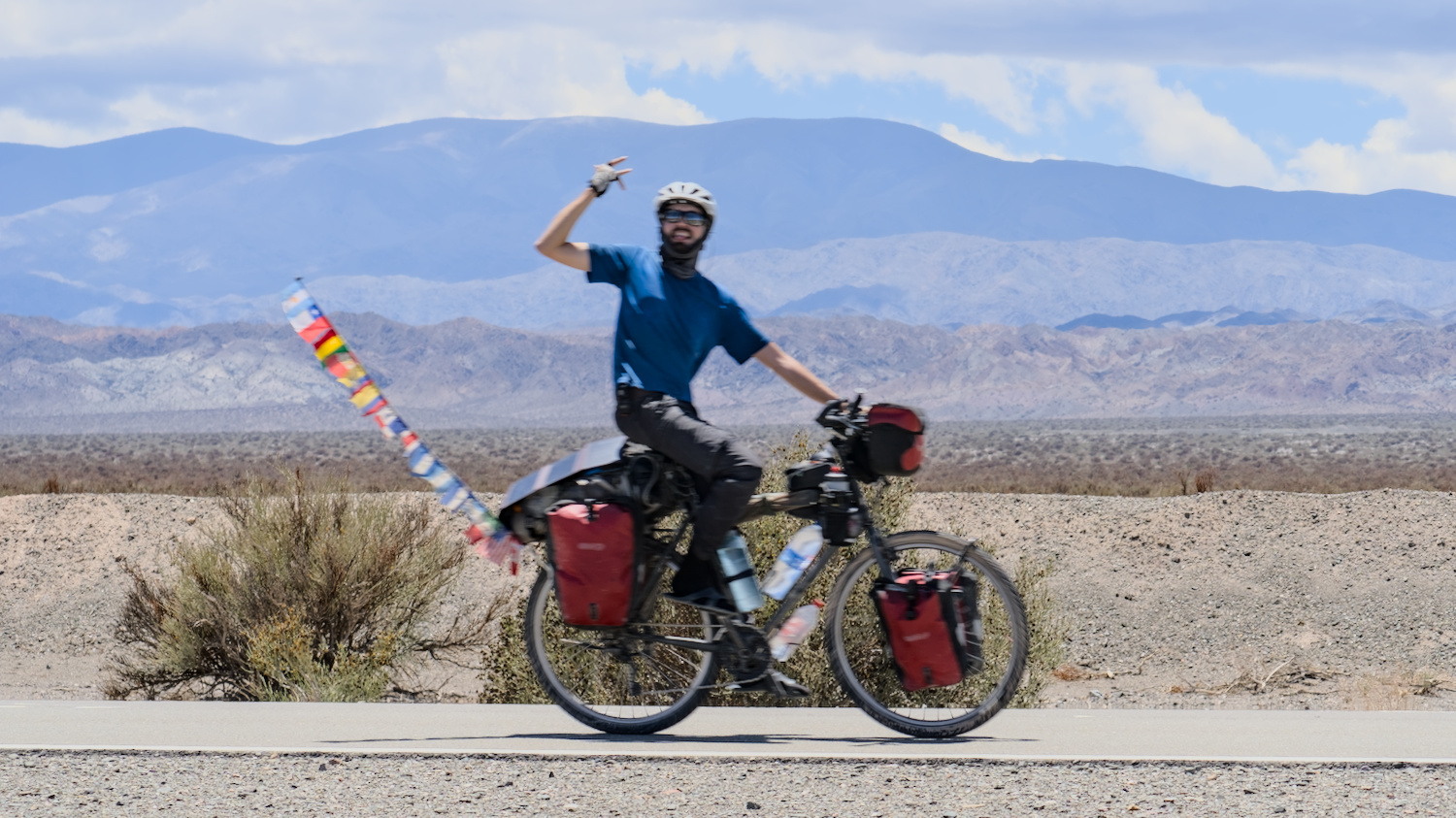
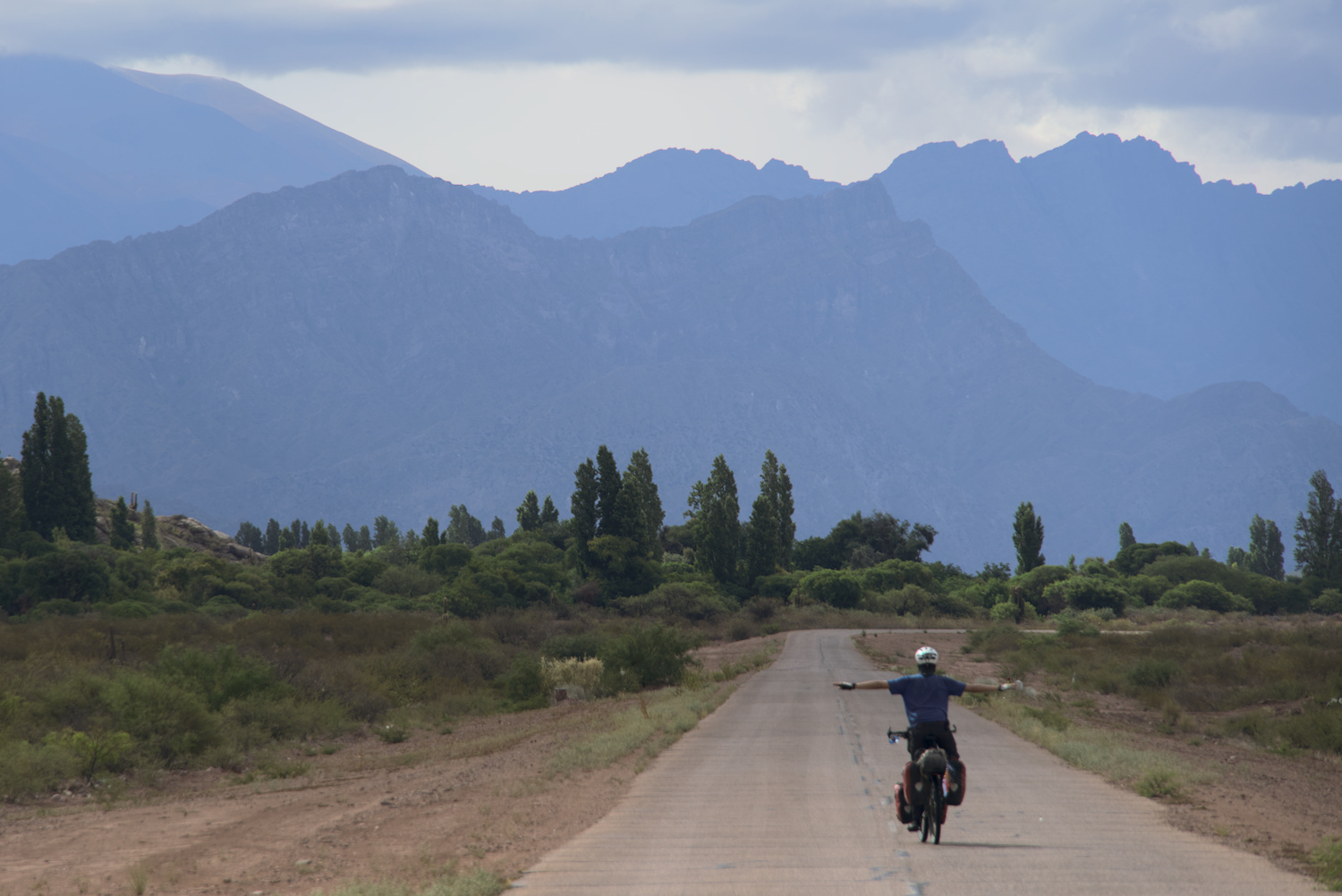
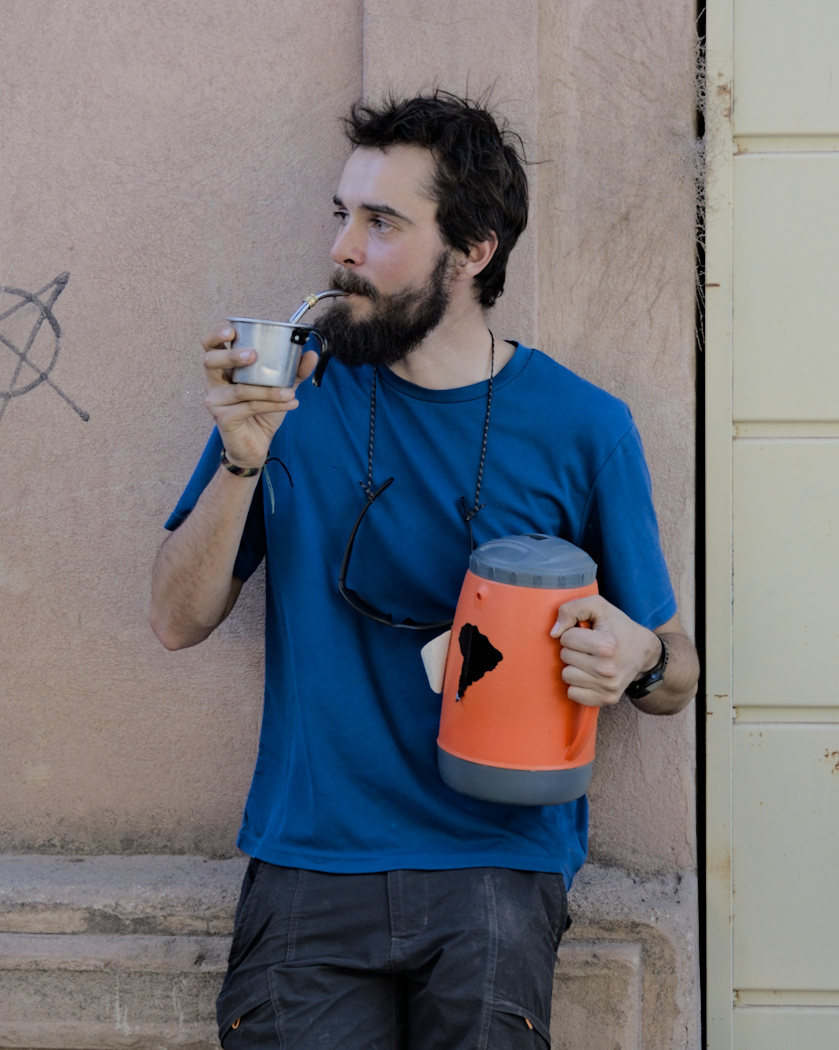
You meet most cycle travellers for a few moments on the road or in a hostel, have a quick chat or spend an evening camping together before everyone follows their route again the next day. But there are also cyclists that you meet again and again – those with whom you have more than just the usual short conversations; those with whom you may share the road for hundreds of kilometres. For me, François is one of the latter – reason enough to introduce him in more detail here.
François was kind enough to give me a short interview for the blog here, which you can listen to in the player. A little further down you will find an adapted transcript of the interview [1]. But even if you prefer to listen to the interview instead of reading it, at least scroll through the whole page, because François has also provided me with some nice pictures from his trip.
If you want to find out more about François’ trip, follow him on Instagram.
And now one last, personal thing: This is the first interview here on escape now!, also the first listenable content. Do you like it? Should there be more? Please leave a comment below!
Transcript
Binni:
Hello François. You are a 24 year old engineer from Belgium and in 2023 you set off on an epic cycling journey from Alaska to Patagonia. We first met in June while cycling together in Costa Rica heading towards Panama City. Since then we’ve bumped into each other five more times and now I’m thrilled to have you here answering a few questions about your incredible adventure. Welcome to escape now!
It’s been 17 months since you began your journey, and we are now in Northern Argentina. Did you expect to be on the road for this long?
François:
In fact, no. When I started this journey, the objective was to leave for one year and see where I would get and come back home after that. I was hoping I would make it to Northern Argentina.
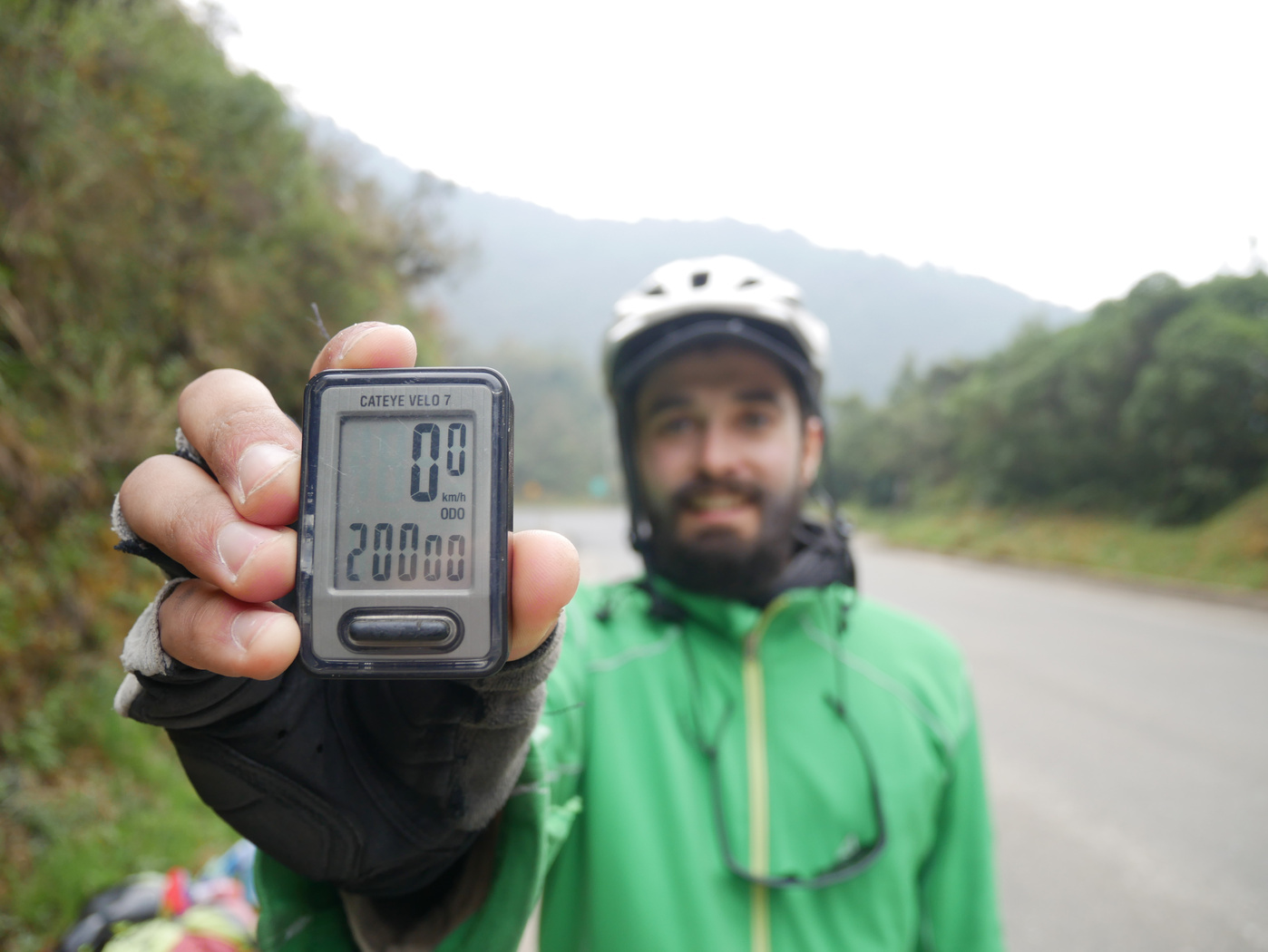
This was my dream from the start, to link Alaska, where I was starting, to at least the north of Argentina and go through all of these countries. But I didn’t think it would take me this long. After a few months, I realized okay, I’m, actually liking this a lot. So I decided I would not only spend one year and end up somewhere in South America after a year, but instead continue, further on towards the south of Argentina, to Tierra del Fuego, more specifically Ushuaia, so that I would have linked the northernmost route of the northern American route system to the southernmost town of the world and of America as well, of course.
And so after a few months, I decided I would make the trip longer. But even then, I didn’t think I would be taking this long. But it’s been a pleasure to be on the road. It’s also sometimes difficult to be away for this long from family, friends, and home. Sometimes it feels like it’s missing, but I’m still very happy to be here and continue doing this.
Binni:
I totally can understand this excitement of being on the road and that you wanted to continue, that you found another goal to reach.
How did the idea for this trip come up?
François:
Before this trip, I had left on a few shorter trips in Europe, between a week and 10 days. And during my last year in Brussels, when I was finishing my master’s degree in medical engineering, I was thinking about doing such an adventure. I think what was also inspiring me, was to see many videos or documentaries of people doing longer cycling trips through different parts of the world, including the Americas. And I had done a few cycling trips before, but never alone. And so in the beginning of April, I set off at the border of France and Spain. I set off on the Camino de Santiago. Up to Santiago de Compostela in Spain, on my own on the bicycle. It was also because I was learning Spanish and so I wanted to put that in practice. But also to be doing my first trip really on my own and see how it would feel.
It actually felt pretty good. So at that point I knew I could travel alone. And again, probably also for language reasons, but also because it’s a continent I had never explored. And I had seen quite beautiful images of it. I decided to go for the Americas. So for the scenery, but also because from Mexico onwards I would only be speaking Spanish, which I had started to learn by that point. That’s how my choice went on the Americas.
Binni:
So your former trips, as you said, have been with a bicycle as well. But why did you choose a bicycle as your mean of transportation?
François:
It’s also a good question. I think it comes back sort of to when I was around 16. Or at least that’s an anecdote which I can relate to where I remember for the first time feeling like the bicycle was a great mode of transportation.
I had a bicycle when I was little as a kid, up to maybe, maximum 10 years old. And after that, I didn’t have a bicycle anymore because I had outgrown my bicycle and we never decided to have a new bicycle for me at home. I never asked for it either. But my grandparents had a bicycle at the seaside apartment that they had, and when I would visit them sometimes in the summer when I was about 16 or 17, I was taking my grandpa’s bicycle and doing some rides around there with some nice nature and realizing I could actually get pretty far in an afternoon and come back. I remember like looking on the map of Belgium and seeing it’s actually something, it was very small of course in an afternoon, but you could still see something. It felt like a big distance. So I can remember that being maybe as one of the very first appeals to bicycle traveling, although at that point it didn’t really materialize the idea of doing a bicycle trip. Later on, I actually got this bicycle back home and used it for commuting in my hometown Brussels. And when the pandemic started, I decided to buy an actual proper bicycle. And that’s when I did my first bike trip with some friends. Back then it was very rudimentary equipment. We took what we had and we borrowed a friend’s tent and we made do with everything we had. It was a very fun trip. And that’s how I started bicycle touring.
Binni:
So you felt a little bit of freedom when you have been young and have been on this first cycling adventures?
François:
Yes. So in this first experience with the seaside, indeed it felt like a sort of freedom. And also in a sense of realizing at that point, even if I was still a teenager, I was already concerned about climate change and so it was also a way to see that you can actually do things also with non motorized vehicles. And that was also very liberating in a sense.
Binni:
Take us back to the very first beginning of this journey. Where exactly did you start and how have been the first days?
François:
So there is a beginning when I started cycling and a beginning of the trip itself a little bit before. And usually I think them as two beginnings in a sense.
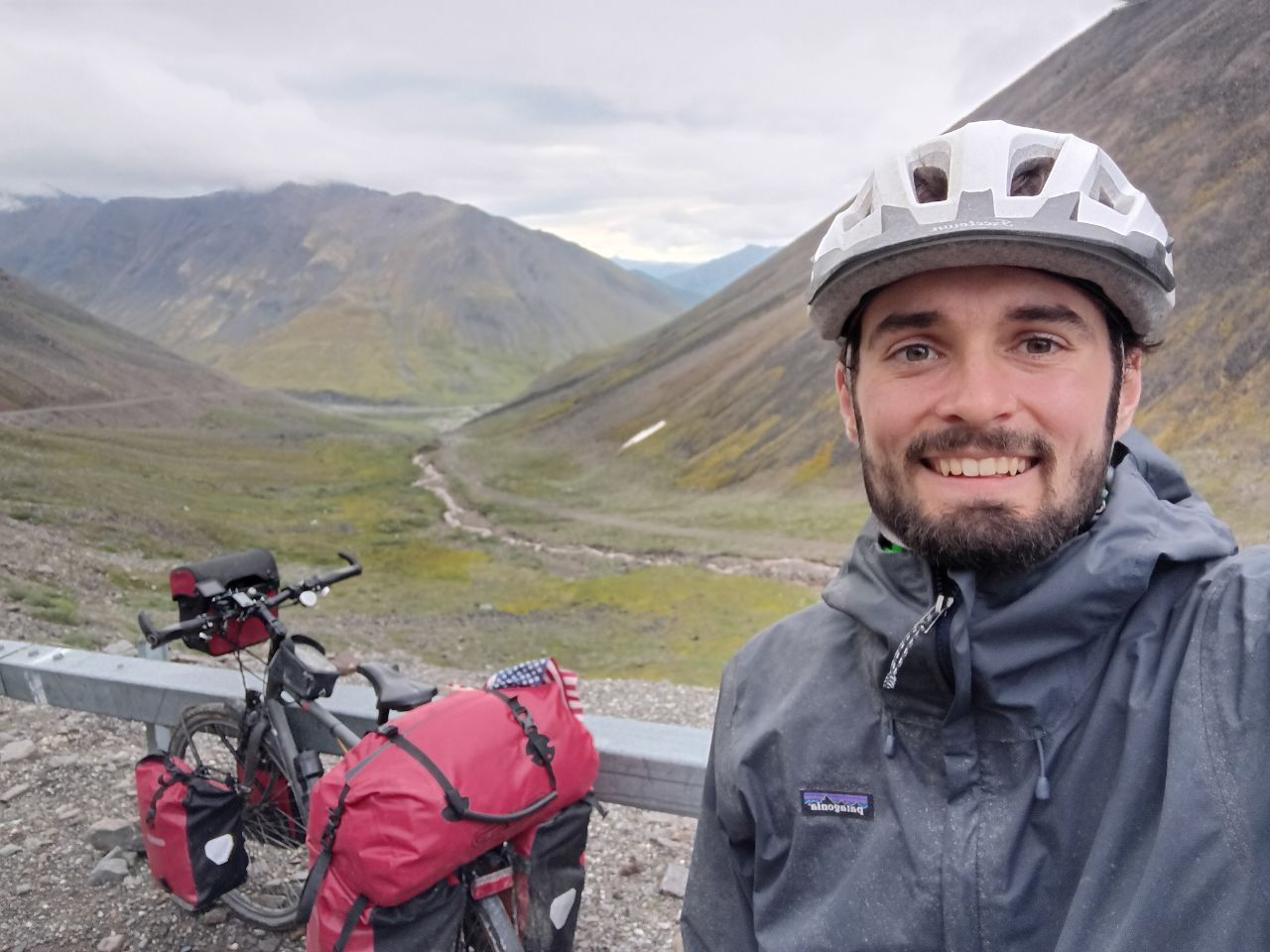
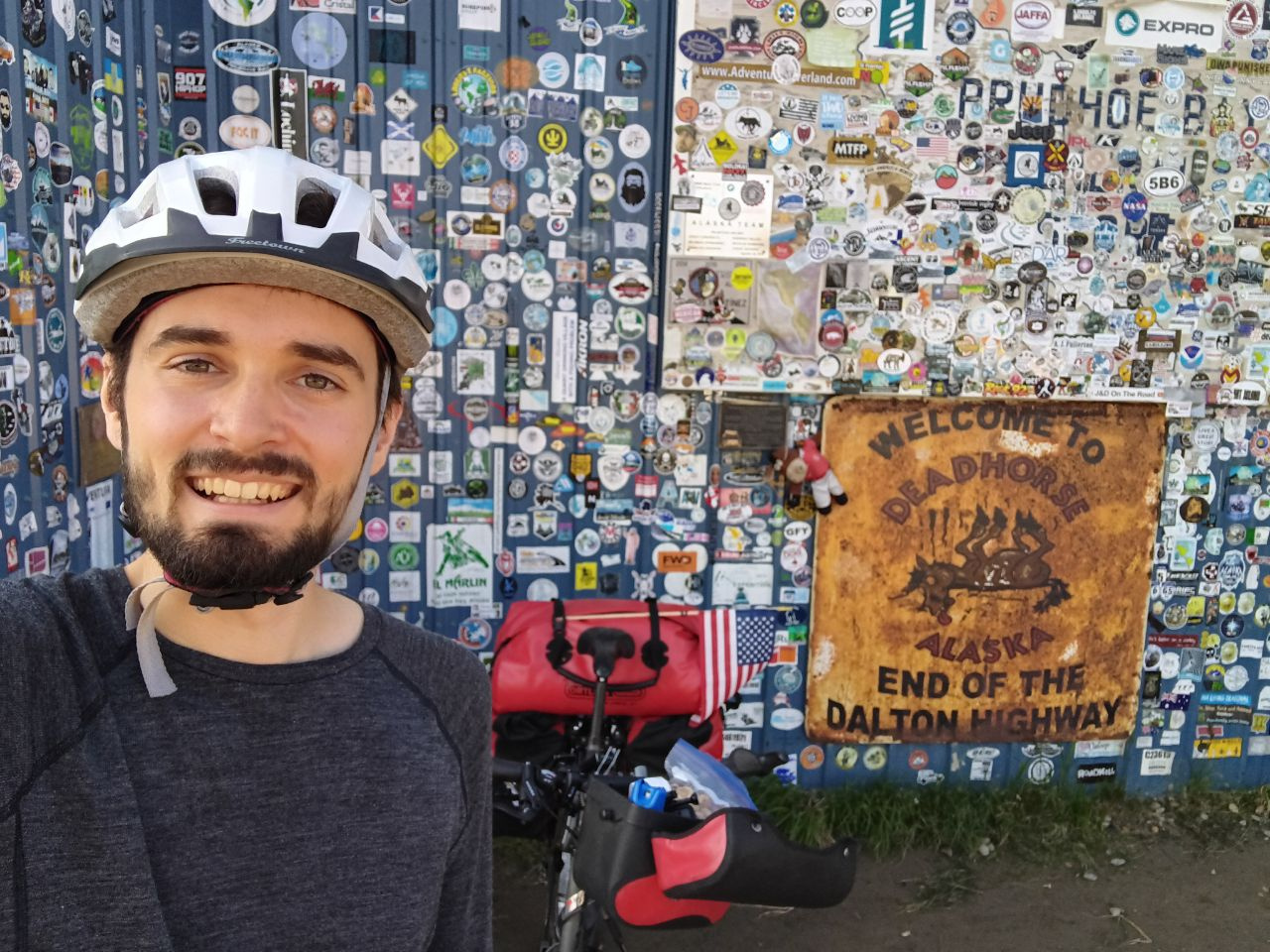
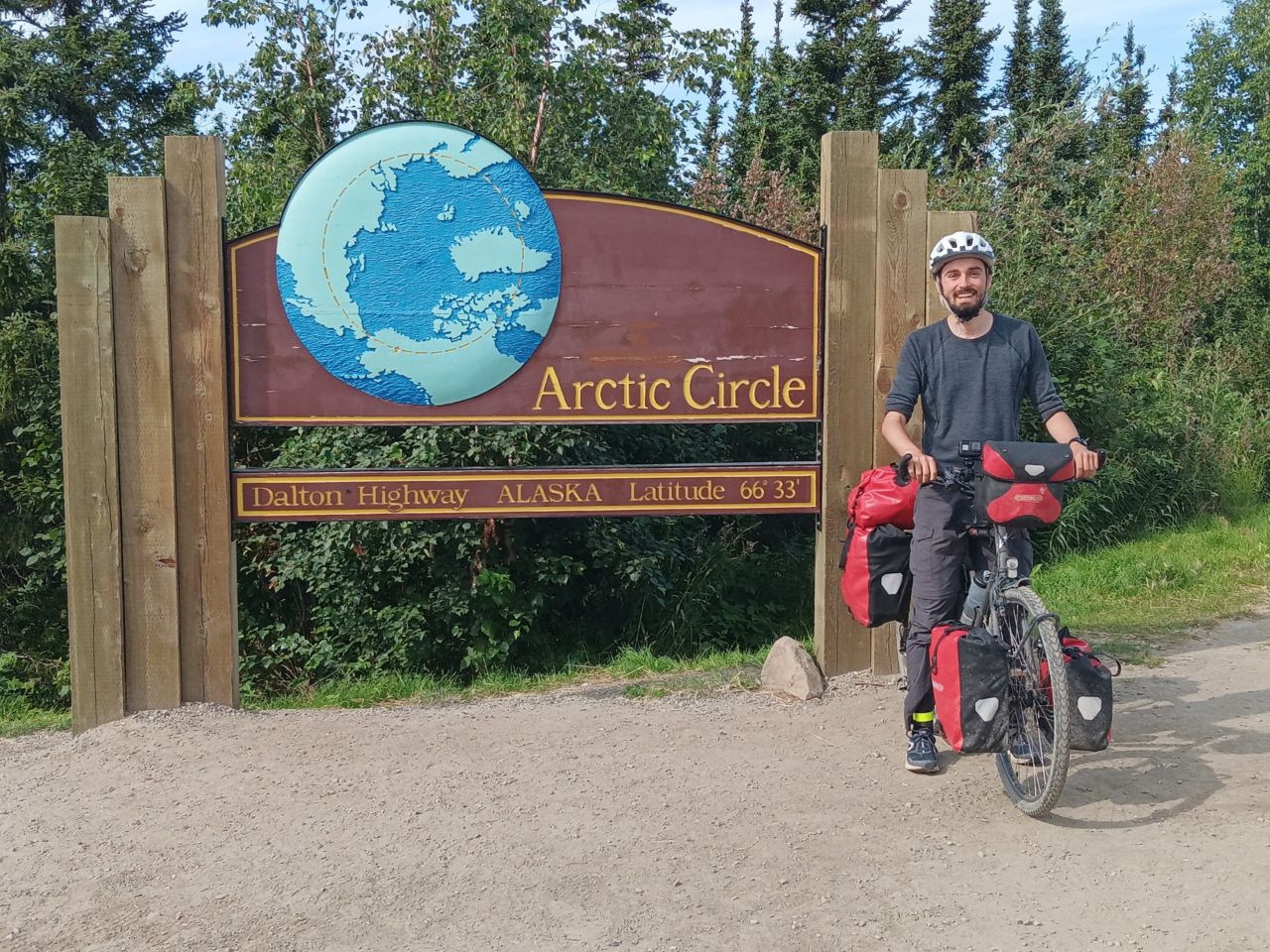
So I left Brussels on 20th of July, 2023. I flew to Anchorage, which is the largest town of Alaska. And there I was welcomed by a very nice family: Jim, Bernice, and Omi, who I thought I would stay with for a few days, maybe three, which is the time to get everything settled, to buy the food I would need for the next start, which I’ll explain later. But I had such a great time with them that I ended up spending a week in Anchorage. I was already enjoying myself so much, even if the cycling part hadn’t started yet. Then my objective from Anchorage was to hitchhike all the way up to a town that lies at the Arctic Ocean called Prudhoe Bay, which only exists because of oil extraction in that area. And it has a road that leads to it, to and from South to the town of Fairbanks. Also for these purposes of oil extraction. That was the road I was gonna start cycling. And so I was hoping to hitchhike there, but I even got offered a flight to there.
Binni:
A flight?
François:
A flight from Anchorage to there by the neighbor of my host, Tim and his wife. Thanks for that still. So I arrived there easily. The day I arrived at the airport there, I had my helmet attached to my backpack and someone asked me: ‘Oh, so you’re on a bicycle, me too!’
So the very first day in this very peculiar town, because only mining is the attraction and the architecture there is also very special because all the buildings are built on top of poles in order not to freeze in the permafrost underneath and reach the building structures. So it’s a very special atmosphere and architecture. It’s quite unique I guess. And there I met Sam, who I cycled with for the two first days. So I thought I would start alone and everyone in my family and my host from Anchorage were directly reassured I wasn’t going to be alone over there because it’s a very, very wild area. You don’t have barely any service between there and 800 kilometers further in Fairbanks. But I had this friend Sam who we joined together, but unfortunately after two days his bike had a problem, so he had to hitchhike to Fairbanks. So that was the start.
The very first day, because I think that’s what you asked – I remember it was a very peaceful day over there, the Arctic tundra, it’s extremely flat, and I had a very heavy bike, because I had a lot of food for at least 10 days, and we cycled for 80 kilometers. Then we decided on the first day, let’s not overdo it, so we set up the tents. And then just very quickly afterwards a big thunderstorm started. But everything was fine. We found shelter and I remember we cooked and we talked and then we went to sleep.
Binni:
What a nice experience that you get to share it with somebody you you met by random, basically.
François:
Actually, I’ll add that with Sam: We keep in touch more or less. But the funny thing is when we meet each other again in random places on the road – this happened quite a few times already on trips where we randomly bumped into each other again. In southern countries, once in Canada and then next time I think it was now in Peru that we randomly met each other on the street.
Binni:
We all share the same road.
François:
Apparently, yeah.
Binni:
Like us, we already met six times now.
The life we have on the road is quite unique and it takes quite some time to get used to it. At which point did you feel like you’ve settled into this lifestyle?
François:
That’s a good question. It’s hard to say. There’s no one point where I feel like I switched into ‘okay, this is my life now’.
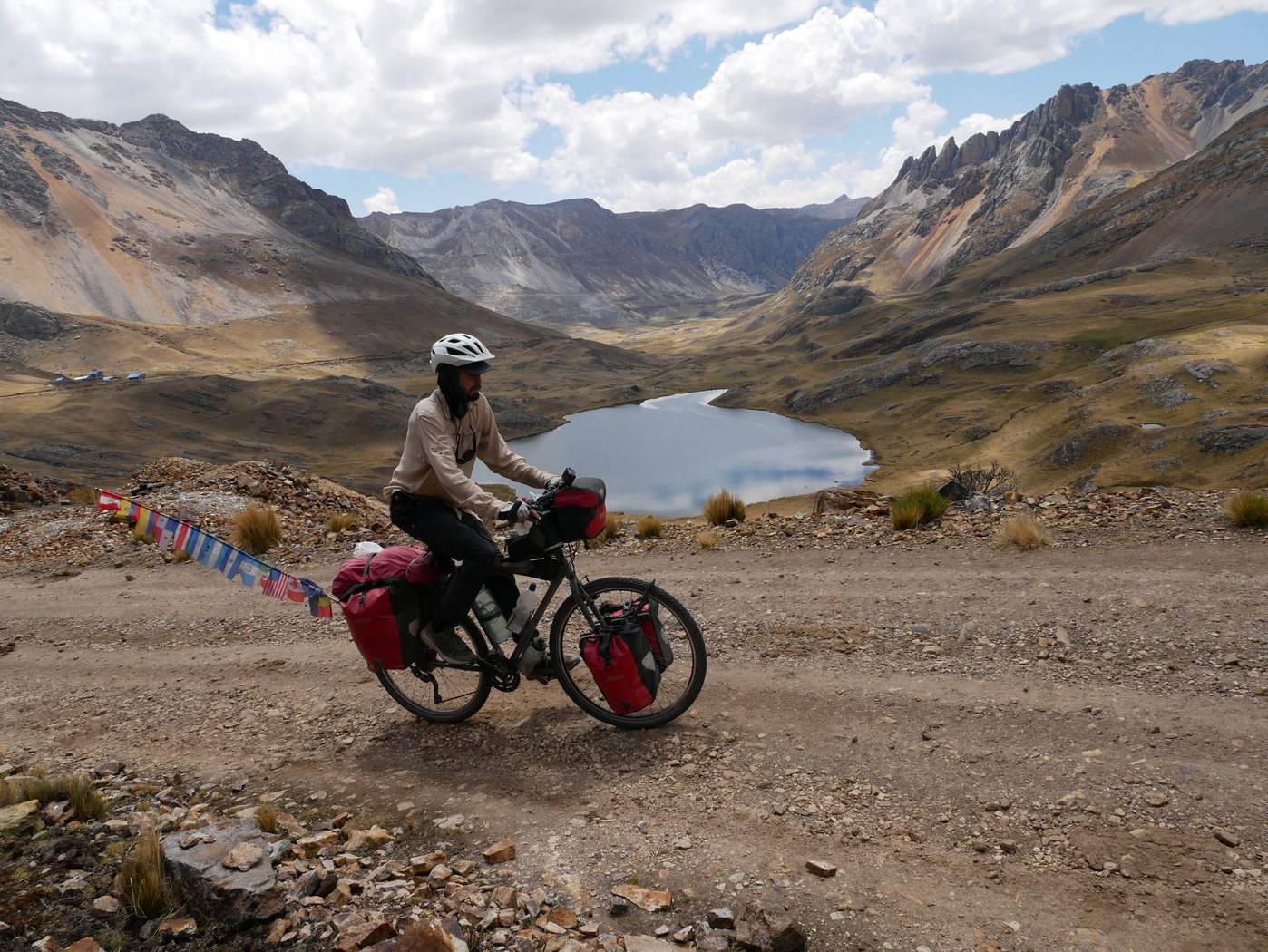
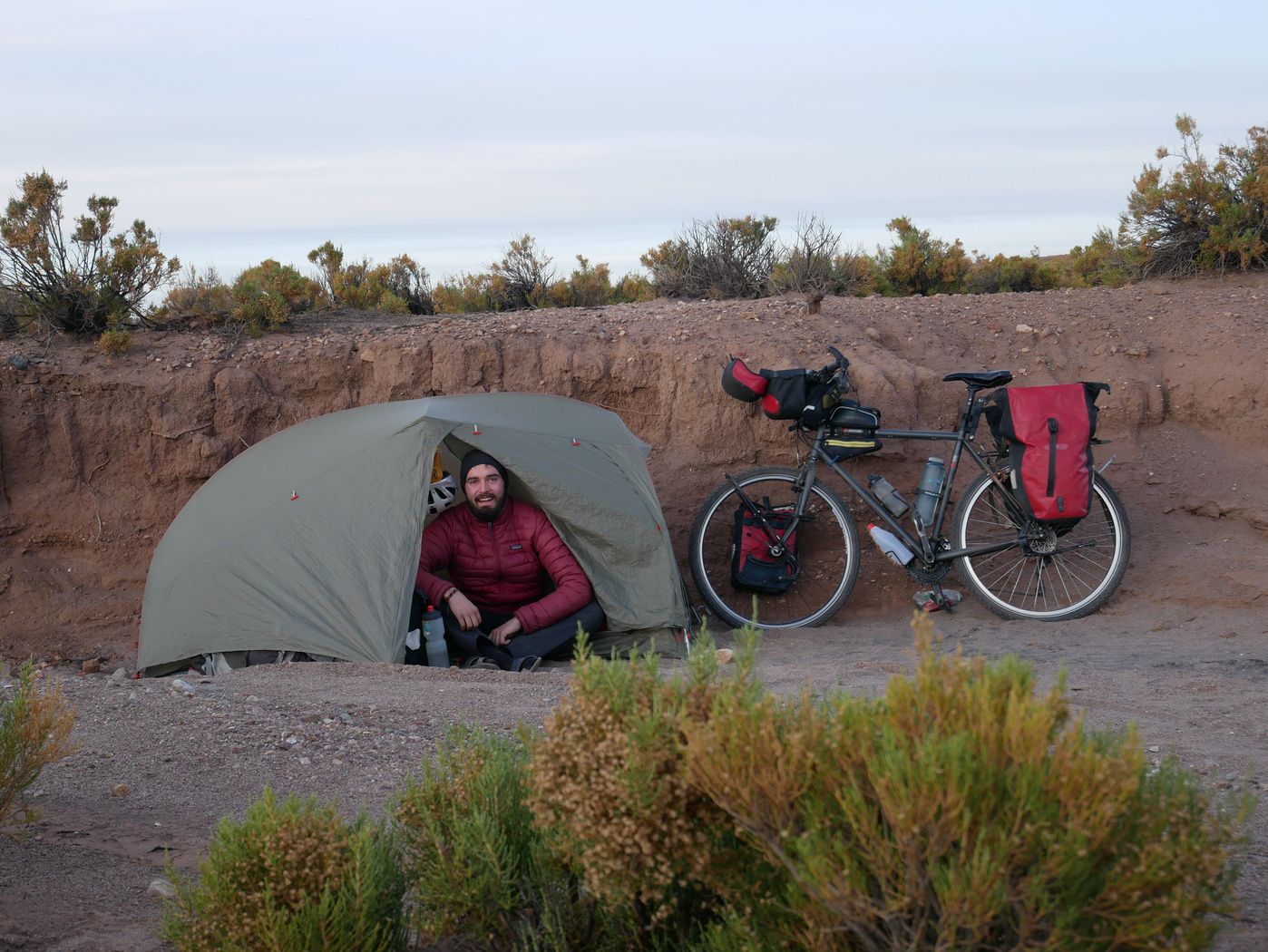
I remember at the beginning, I often woke up thinking, where am I here? Realizing, oh yeah, I’m in my tent and I’m in Alaska, or I’m in Canada. But this it hasn’t happened in a while for now, that I thought I was waking up in my bed or that I had no clue where I was. Now it feels quite obvious where I am, I don’t really wonder. And maybe when I go back home, I’ll wake up in my bed thinking I’m actually in Patagonia still. But I guess somewhere in Alaska, little by little things settled. Also in Alaska, I was a lot sleeping in my tent. Whereas in other places afterwards, I might have slept more at people’s places or, let’s say at safe places to camp, like fire stations or police stations on the way, in Central America especially. So over there it got me into the flow of camping more and such.
Binni:
Okay. For me itself it was around three months, I would say until I settled in. I had my first little crisis on the Balkans – I was in Croatia and I had the first time to deal with cold weather and a wet tent all the time and short days because of the missing daylight. After I got over this first, bigger problem, I felt much more comfortable and everything was going more smooth. Then I felt a little bit more like a cycle traveler and not like a beginner anymore.
François:
Yeah, I guess you had a specific sort of crisis. I don’t think I had this thing that made me realizing.
Binni:
What are the three things you enjoy most about this journey?
François:
I think I’d say the people, the landscapes and the people.
Binni:
(Laughs) I like this answer!
François:
I hesitated on saying the people, the people, the people, but the landscapes are pretty amazing so I had to include them. I guess to some extent the food as well, but being a vegetarian, sometimes it can really limit the food scene for me. I still try to try some of the foods, even if they’re not vegetarian, but I’m not going to enjoy them as often because I just try them maybe. But to come back to my answer, first of all, the people, because you get to meet people you would have never met otherwise, you get to understand other cultures better. And then also the people, because in this trip to me people have been extremely kind and generous. I’ve loved discussing with them about a whole area of topics. I have special interest, for example, in understanding how the geopolitics of the country work or how their country functions and the differences. That’s always been very interesting to me. What I’ve also found very interesting here in the Americas, in Latin America especially, is how I don’t feel like compared to back home, people here aren’t afraid of foreigners. People have always, very easily trusted me. And I feel like that’s something that’s giving me a lot of possibilities and made a lot of friendships thanks to that. A lot of interesting encounters. And whereas I feel like back home, we might be more skeptical of why someone we don’t know is coming to talk to us. Or asking us for something like water or to put their tent in our gardens. But here people always seem to be very open to helping me and talking with me. So I really appreciate that. And then the landscapes – I’ve been gifted to go through many incredibly beautiful places that have given me a lot of awe.
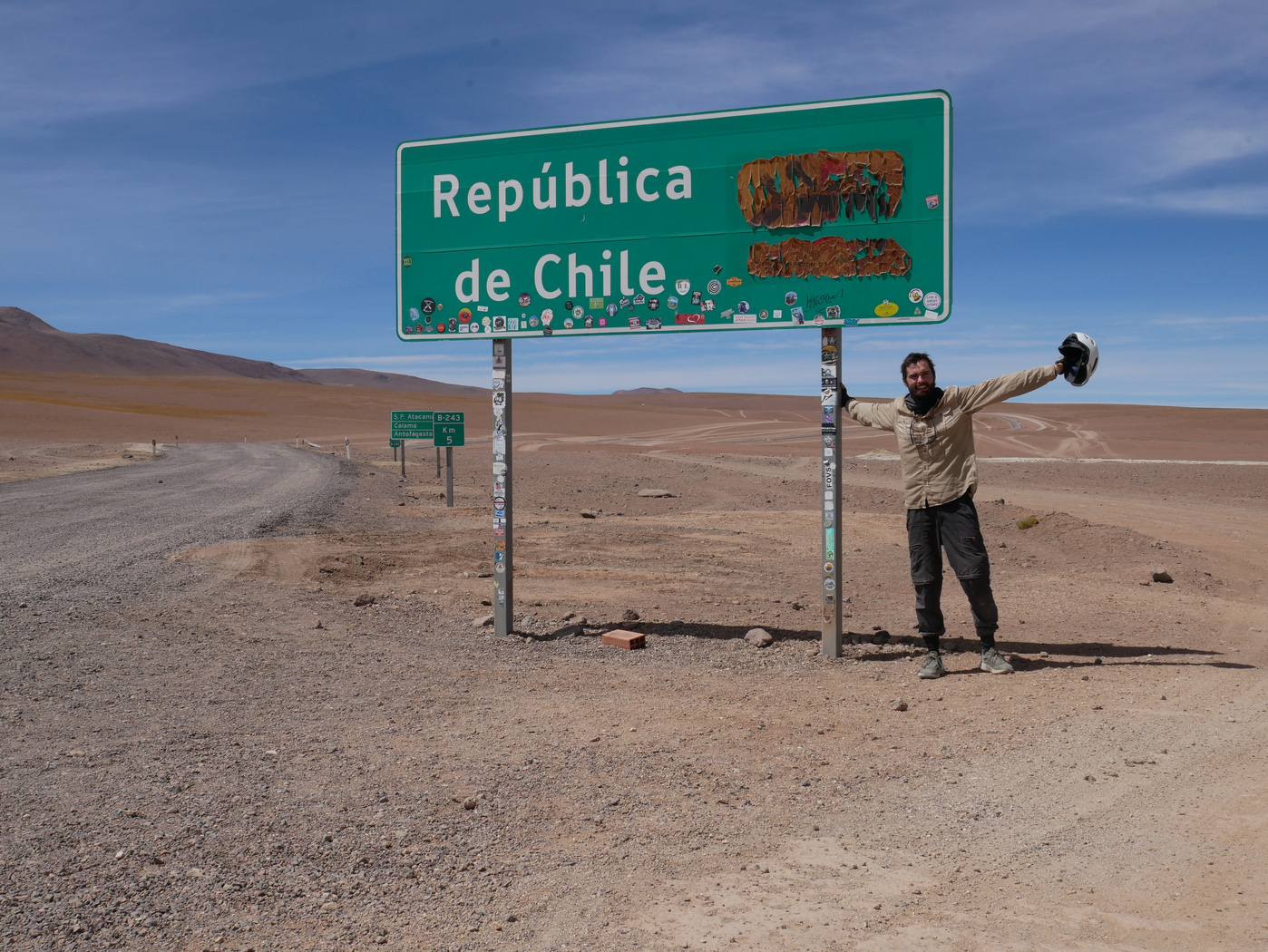
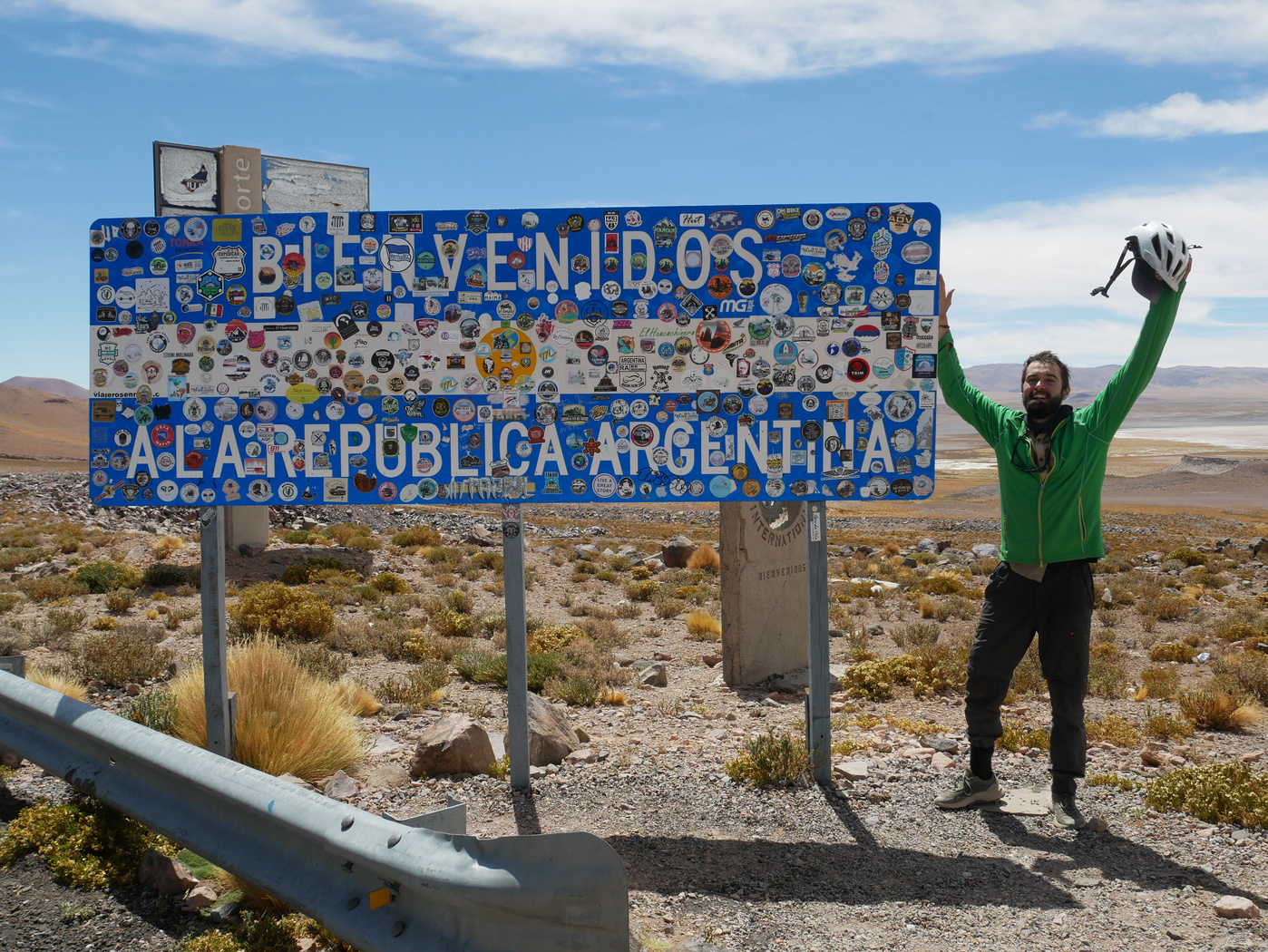
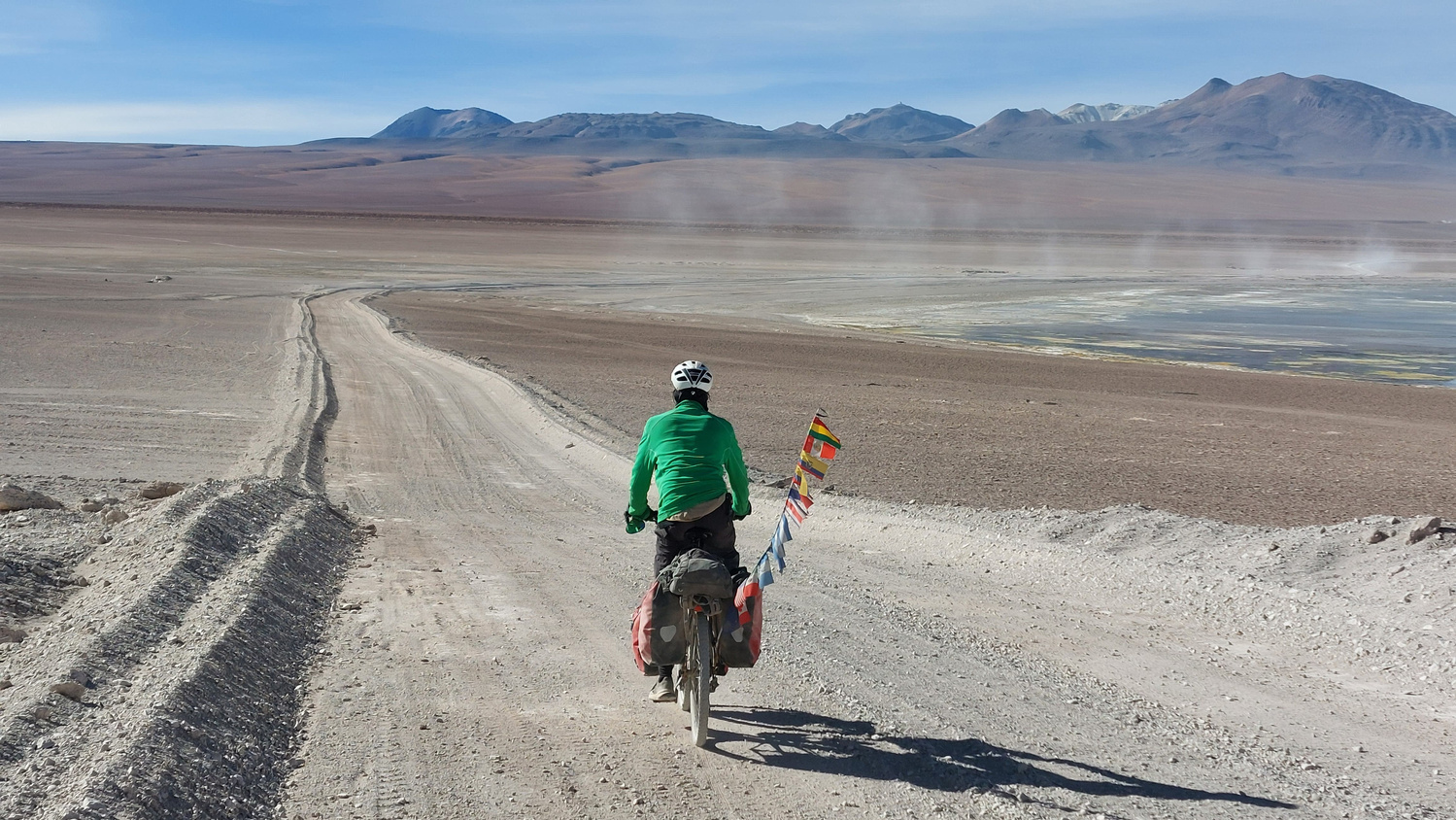
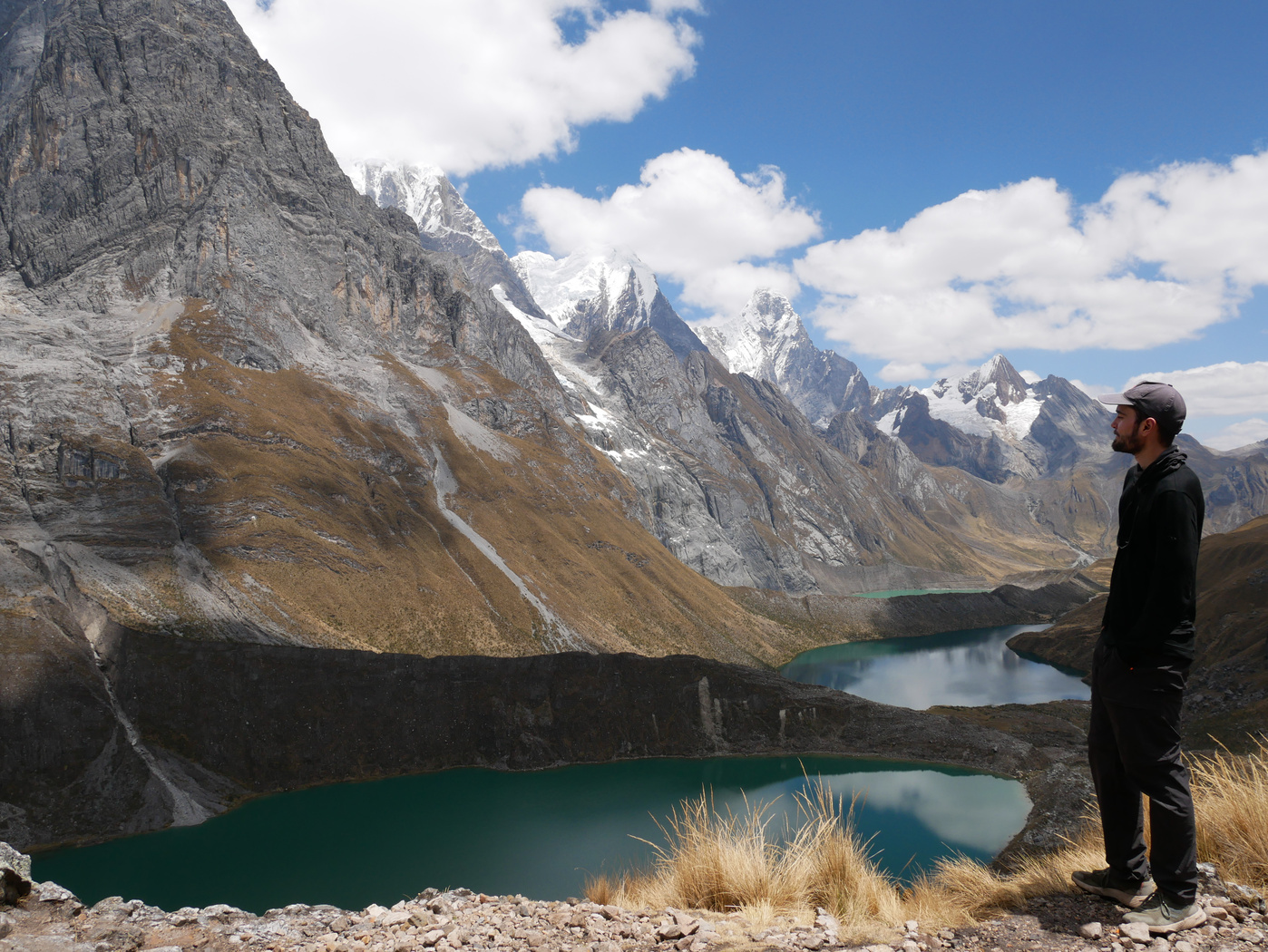
Binni:
I’m glad that you also mentioned the landscapes, because my next question is pointing to this topic. Many people ask me about the best places I’ve visited, and I always find it really hard to narrow it down. But now it’s your turn. What are your favorite places so far?
François:
Indeed, it’s not an easy thing to do. But because people ask so often, it makes me think about it several times. And so I’ve come with some things I can answer when people ask me. Usually I say Alaska, well in chronological order of my trip. Alaska, and here it’s both for the wilderness and for the friendliness of the people there.
Next I mention the Canadian Rocky Mountains, Jasper and Banff, the national parks there. Over there it really felt like cycling through the so called Ice Shield Parkway. It really felt like being a child again and being amazed by things like a child, because the landscapes were so, so beautiful. Those pine trees, beautiful colored lakes and gray beautiful mountains. Even looking back at the pictures now, I still had the same awe looking at them again. I think it’s a really special place. After that, I enjoyed Southern Utah a lot, because of the other earthly colors and scenery there that is quite unique. And then Mexico in general, I really loved a lot.
I realize I’m mentioning quite a few places, we’re not even halfway through my trip and I’ve already mentioned four.
Binni:
(Laugher) I know exactly this feeling.
François:
But I’ll still continue maybe more briefly, but Mexico in general was great. And Mexico is for the people, but also the food, the scenery, everything is just perfect on all levels, I’d say, in Mexico.
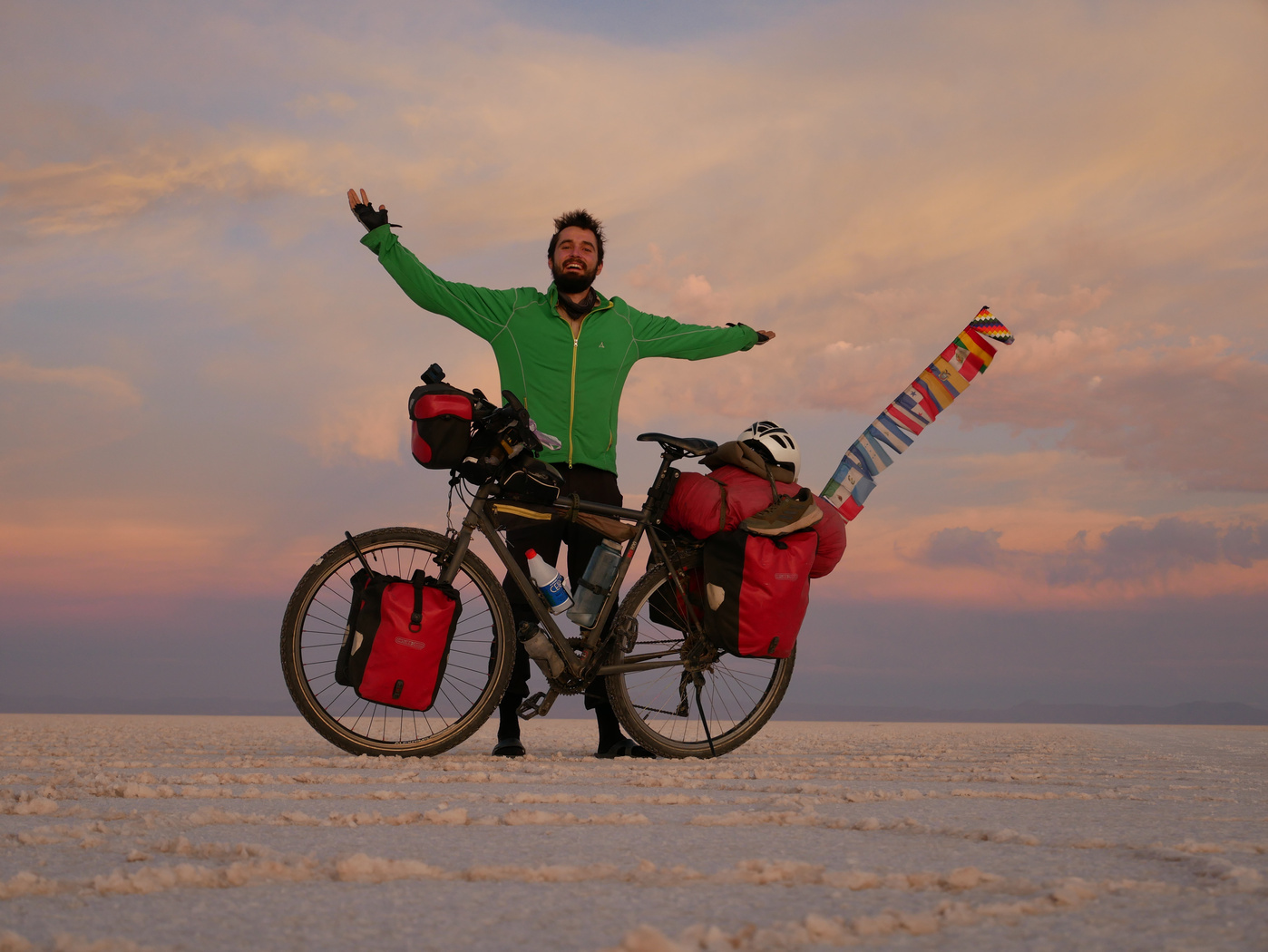
Maybe I’ll leave a big gap afterwards. But the next country that really amazed me was recently Bolivia, which I really enjoyed, which also had very unique landscapes and scenery like the Salar de Uyuni, but also the southwestern region of Lipez, which I also really enjoyed cycling through. And for now I’m enjoying Argentina a lot, which might be added to the list. Yeah, those are probably my highlights.
Binni:
Okay, but of course not every area we cycle through is amazing. So, which place or country wasn’t very enjoyable for you and why?
François:
Of course, that’s also a question people might ask or that I might realize sometimes I’ve haven’t had as good of a time in some countries. And for me, I enjoyed a lot Central America. I wouldn’t say I didn’t like it, but the heat and the humid heat was tougher to cycle through. I did enjoy it very much though, but it was a harder segment of the round. And after that, Ecuador was beautiful, but I felt like I had less meaningful, positive interactions with the locals than I might have had before.
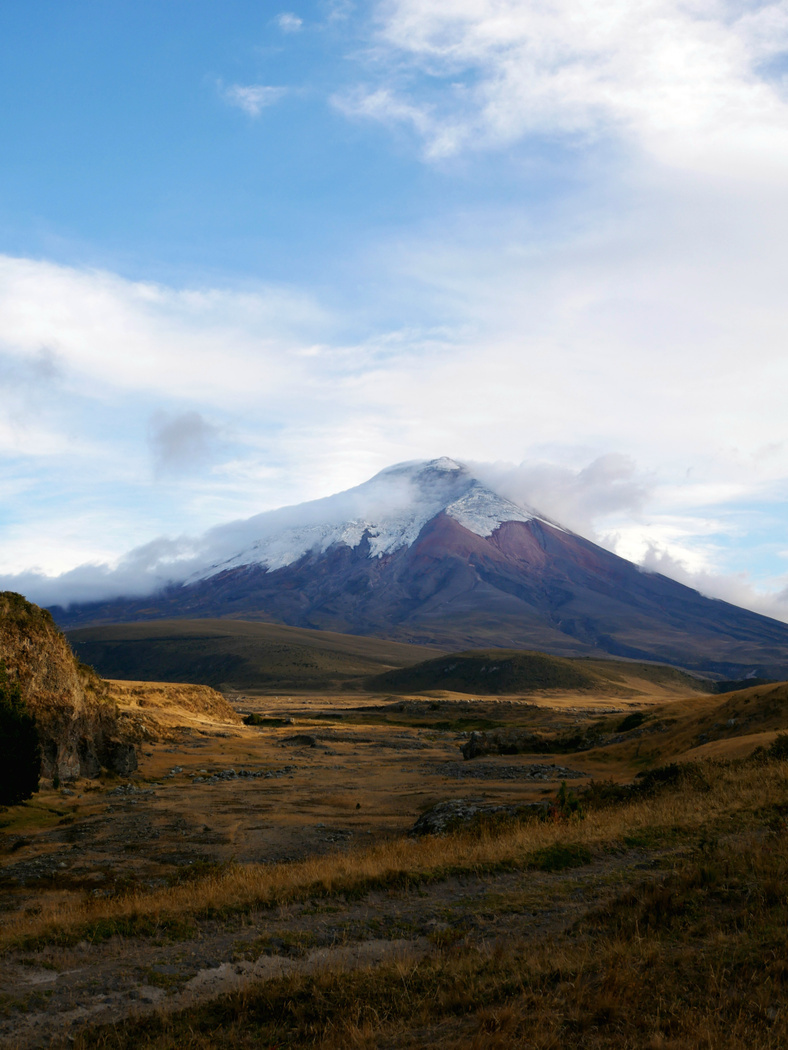
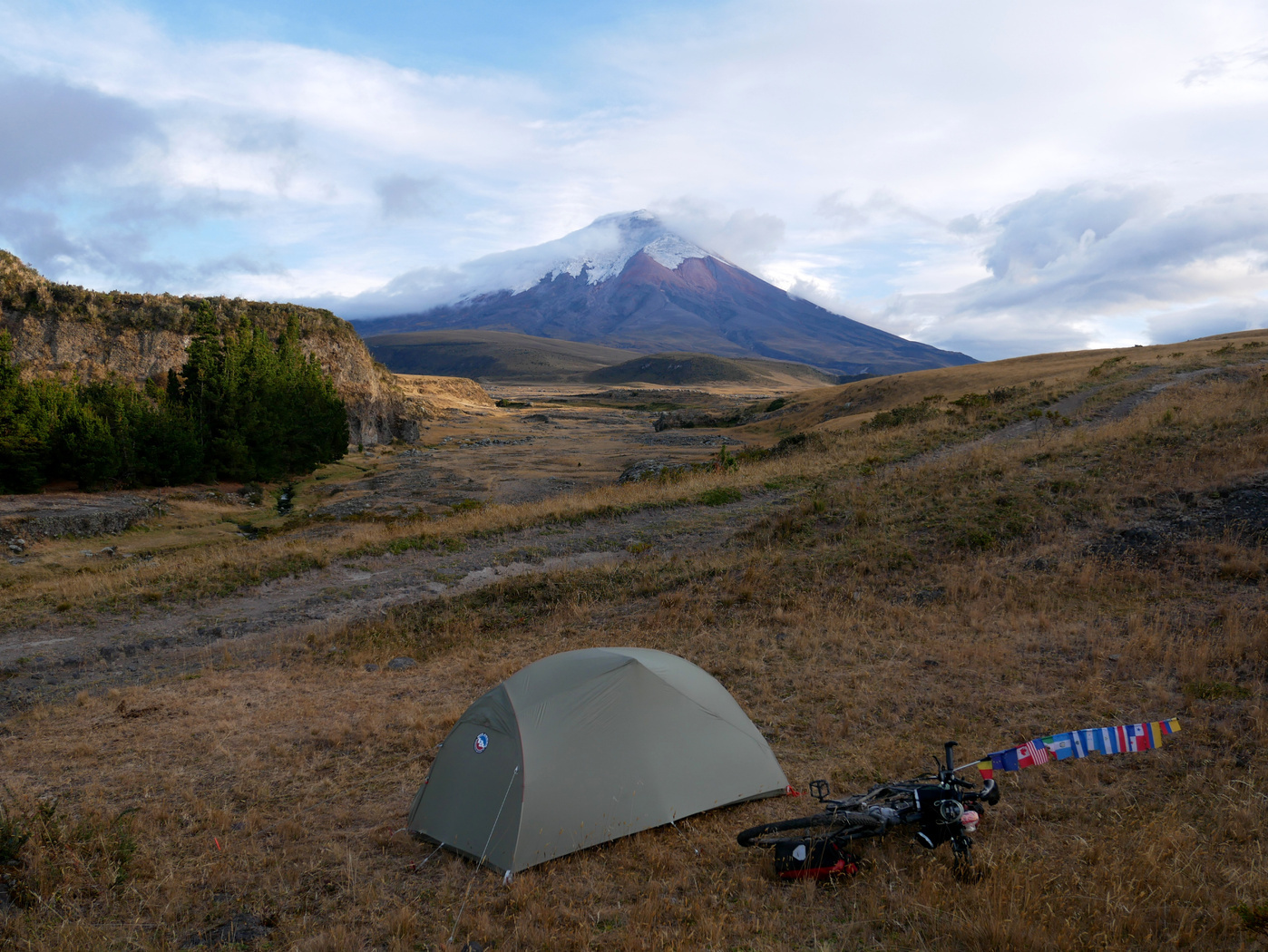
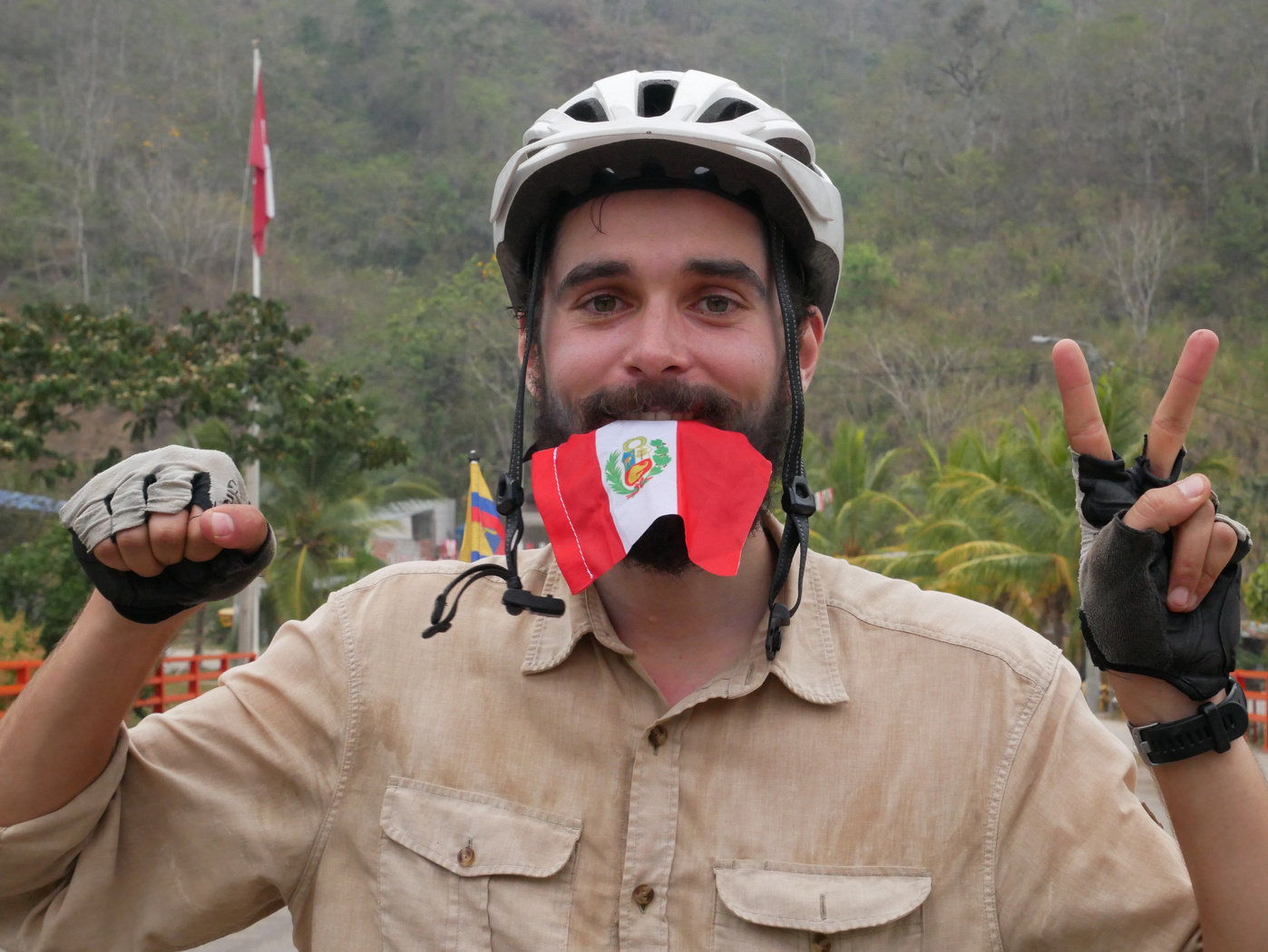
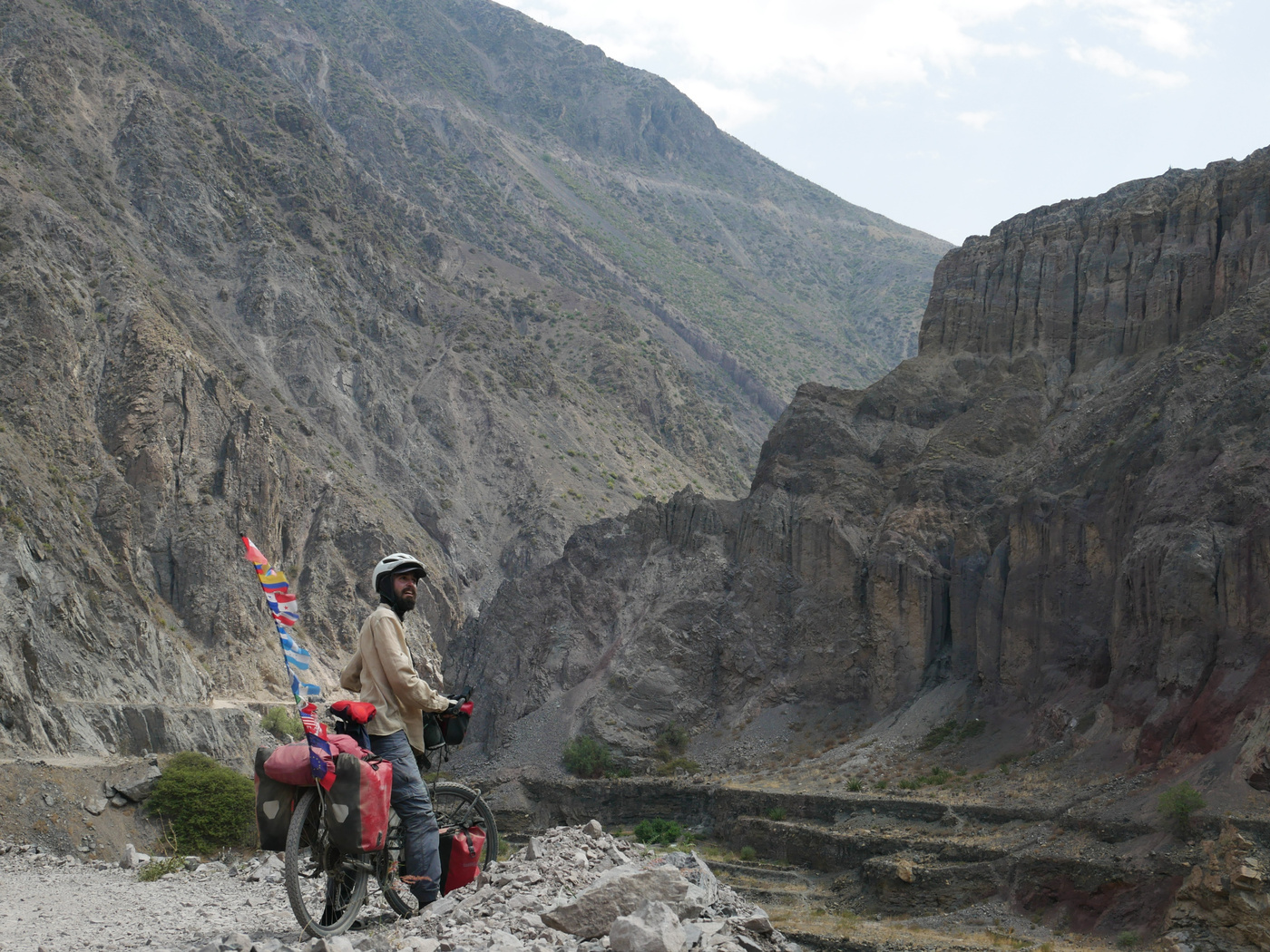
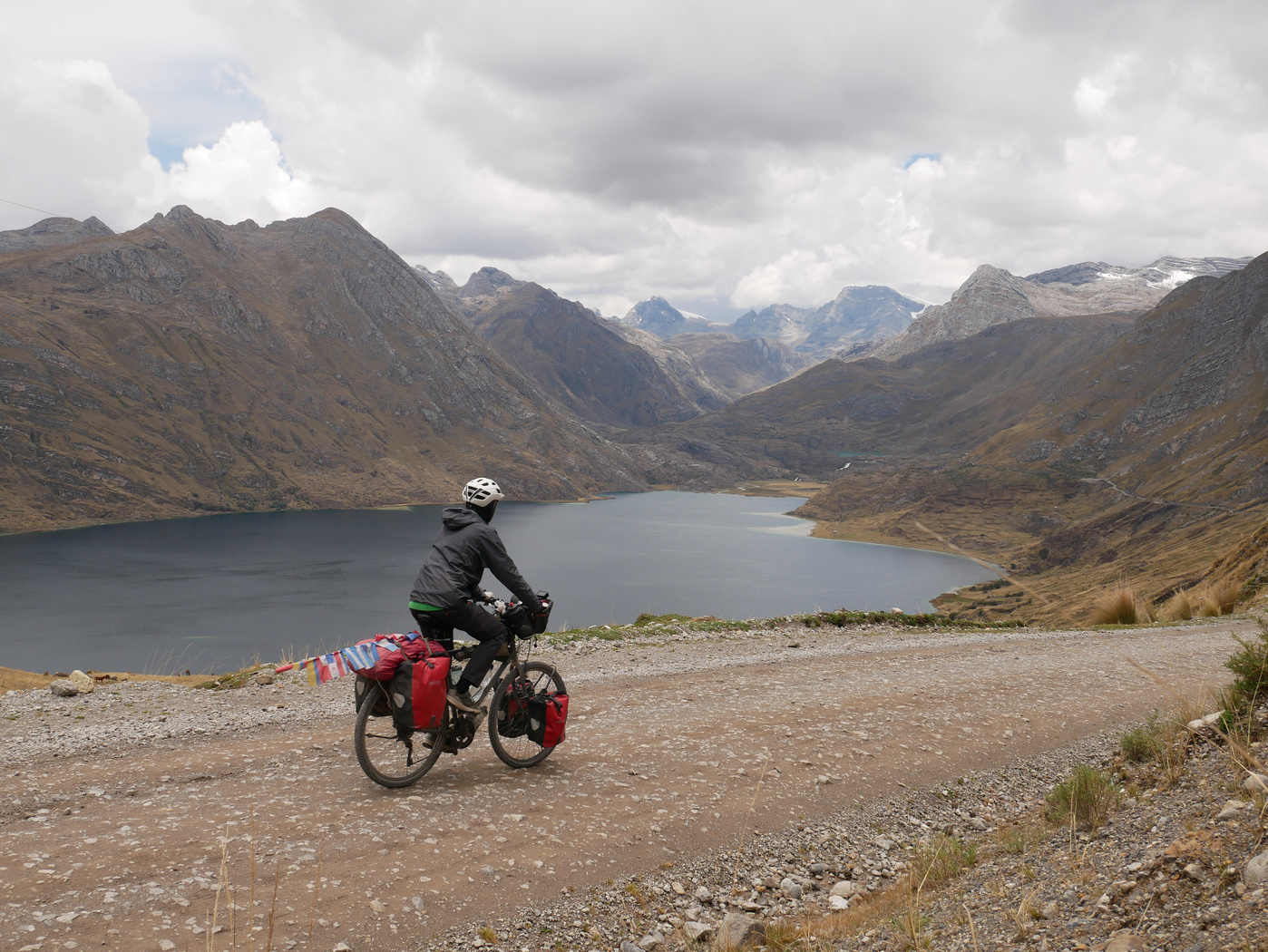
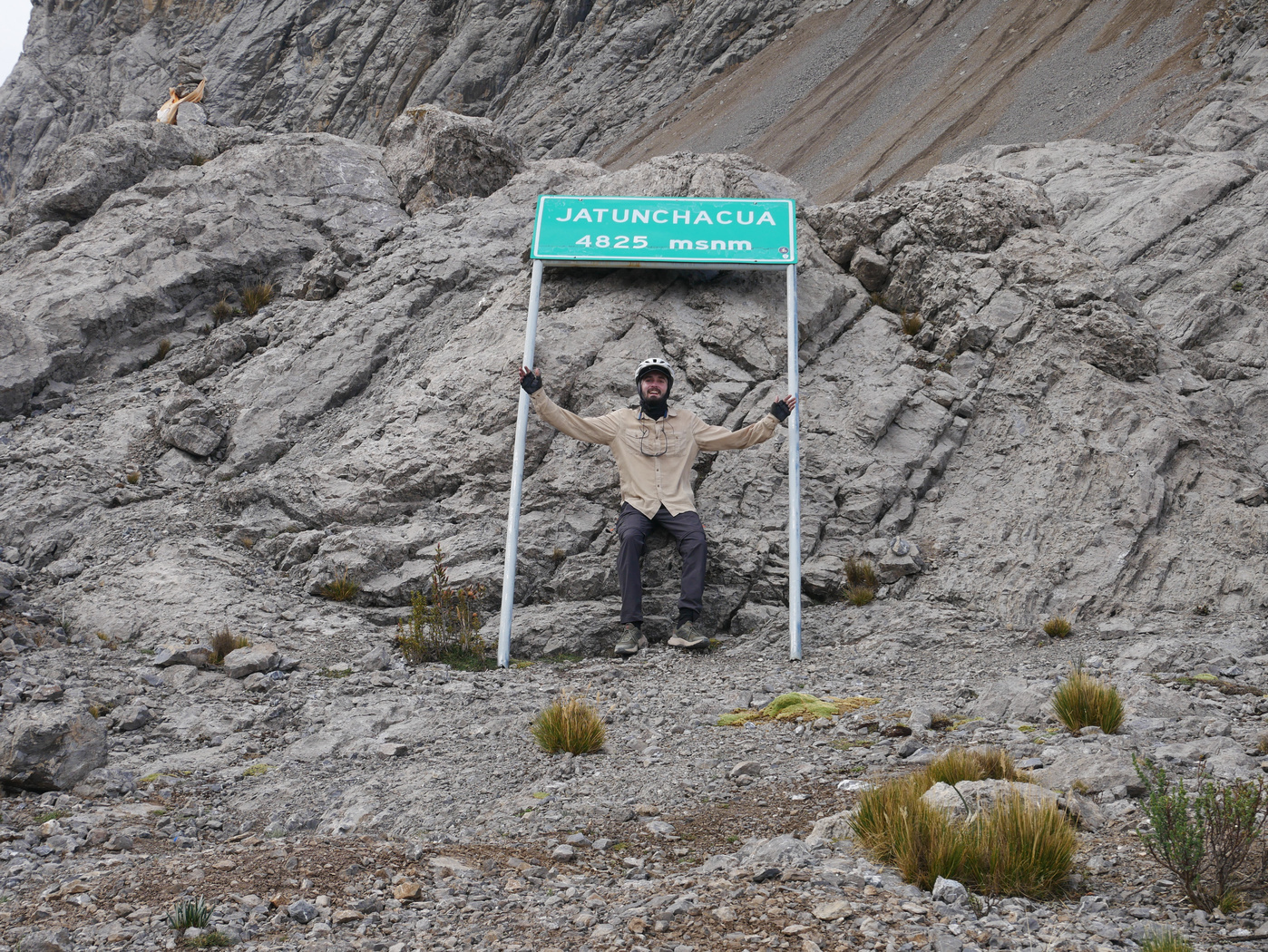
I felt sort of similar in Peru, where in both countries, I enjoyed a lot the beautiful sceneries, but I would have enjoyed more deep human contact with locals, and also sometimes regretted that the tourism infrastructure might be more developed and felt a lot like money milking.
Binni:
And what has been the biggest challenge you’ve faced during your trip so far? Because it’s not always just sunshine, nice people and beautiful landscapes. There’s also lots of stuff we have to deal with.
François:
Yeah, there have been of course some moments where indeed the mood was probably lower.
I’m thinking about in the contiguous United States, where I have only cycled alone there, as I remember correctly, on nearly three months, which at times could feel lonley. That was maybe one of the first changes. At those points, I remember wondering why I was still continuing what I was doing sometimes because being really lonely and lacking human contacts is difficult, but I managed to counteract that in a way by cycling long days, so I would make good progress. Then when I would get to a town or a city, find a warm shower host that accepted to host me for a few nights and there I would be able to make longer, more meaningful contacts with the people who would host me. Because of course you still continue meeting people on the road when you’re not in a town, there’s still people of course, but the conversations are often short lived and you start lacking having some deeper conversation and not just explaining your trip for the 100th time maybe saying: ‘Oh yes, I left so many months ago, I’m going there’. So I counteracted that loneliness by staying longer with hosts, this helped me in those times. But then I remember every time that I was leaving a family or a person’s home again, that would be the toughest moment again. The day I was cycling on my own again into probably desolate landscapes oftentimes and this moment of social sharing was over, so this was the more difficult days.
Binni:
And was there ever a point where you wanted to quit? And if so, what kept you going?
François:
It depends. In the United States, feeling lonely sometimes – I wondered what I was doing, if it still makes sense. But oftentimes, when things are difficult, you end up finding that the road gives you something to appreciate. The beautiful landscapes or maybe a nice animal sighting. And that’s always the moment you think, right, that’s why I’m doing this.
I also thought about when I was getting to Panama, after about a year after leaving from Alaska – it might’ve been a good point to break the trip there and maybe do the southern half in a future trip. But at that point, what was keeping me from doing it was that I had already made plans to meet friends in Columbia. So I went to Columbia and continued the trip from there anyways. I’m very happy I did of course, but there was another occasion where I thought I could have quit.
Binni:
I still remember when we reached Panama together, you had been quite happy to finish North America, you had been quite proud. And you could be really proud of yourself to cycle from North to South of North America.
François:
Yeah, it was a great moment.
Binni:
What has been the biggest surprise of the journey so far?
François:
There have been quite a few. One that was really a surprise in the sense of how you expect a surprise to be was when I was waiting for my friend to arrive at the airport in Medellin. When he got there we hugged, and I was like, let’s go take a cab, and he just had to go to the bathroom first, and then he got out of the bathroom, and he was like ‘actually, we need to wait a little longer’.
My friend Alexis I knew he was coming and he was like, okay, my other friend Elliot is arriving, by surprise, and I wasn’t aware of that. So we go wait for him to arrive because he took a bit longer at the customs apparently, but he doesn’t arrive alone, he arrives with yet another friend, Thibaut. So in total, instead of having one friend in Colombia, I had three, two of them being surprises.
Binni:
That’s a very nice surprise, especially after such a long time seeing some of your really good friends in a foreign country again.
François:
For sure. That was a great moment and we had a great time, the four of us together.
Binni:
And now after 17 months on the road, what do you miss most?
François:
I try to keep a lot of contact with my family on these trips and friends by calling them often. I miss them a lot, but I’m happy we’re living in the times we’re living and I can still video call them very often. So I’ll be happiest to see them again. Or when I come home with the other things that I miss from home.
And coming back to family and friends, I guess I miss most the family I can’t really call or have more profound calls with, which is my two and four year old nieces. Who are not very patient in front of a screen. So that’ll be a great thing to see them again as well. And for the rest, I’m really grateful we can have those communications nowadays, but I’m not sure I would have been able to leave on such a long trip without those. For the other things I miss some food, Belgian fries, Belgian chocolate, that’s more a bonus for when I come back home.
Binni:
So your goal is to reach the southern tip of the continent, Ushuaia. Are you looking forward to finish the adventure or does the thought of it make you a little bit nervous?
François:
I would say both. Because I’m looking forward to get back home and see everyone again and get back into a lifestyle where I have my own place maybe. It’s very enjoyable to live in my tent, but sometimes it feels like I’m missing having my own space as well. So this is why I’m looking forward to it. At the same time, I also know that going back is probably going to be very difficult from one day to another to stop seeing new scenery every day, meeting new people every day and get back into the routine. Something I fear but at some point it will have to happen, right?
So yes, I’m both happy to reach Ushuaia, but also conscious of the fact that it might not be easy.
Binni:
We all have dreams. So after this adventure, do you already have a specific idea for your next adventure?
François:
Of course. It feels like it would be impossible to say after having lived all this, this was a one time thing.
Sometimes people tell me ‘Oh, enjoy it. It’s once in a lifetime adventure’, but I don’t think they realize what it actually means for one to do this, that he can’t come back home and just expect to be living here the rest of your life, just home. So for me the next adventure will be with a bicycle as well. I realize this is really a way of traveling and exploring the world that makes the most sense to me. Where exactly it will be is another question, which I haven’t fully replied yet and probably won’t reply until I actually leave on the next trip. And even then, I believe the next trip will be more open ended and flexible in terms of trajectory and destination and time spent. I realize in this trip then having the objective of cycling the whole Americas is very nice, it gives you an end goal, but also it might sometimes hinder you from visiting places that you would like to visit because you have this objective you need to reach or spend more time in some places. Maybe if I didn’t have this temporality in the end of about two years I would have spent one more year on this whole continent to explore it or even more. Or probably I’ll even come back here in some day in the future. So I believe this is one thing I learned for my next trip to probably just leave and see where the road takes me.
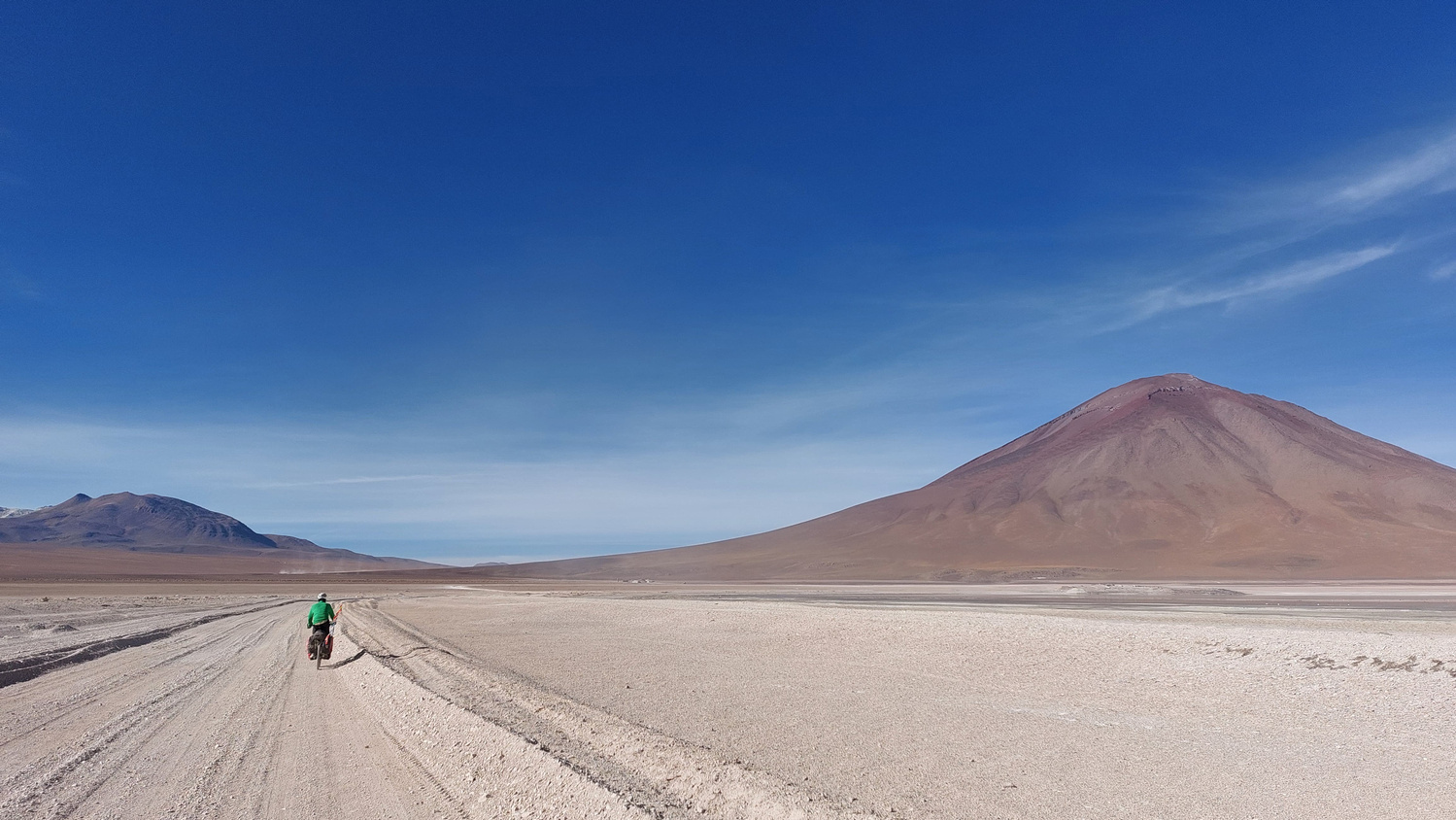
Binni:
Personally, I associate certain songs or albums with specific trips or places I’ve traveled to. Do you relate music to places you’ve been during this trip?
François:
I do. I actually started a playlist in Mexico, where I go adding songs that I hear in different places. And it’s very enjoyable to listen to it afterwards, and most songs, if not all the songs, are linked to a specific place in my journey. I wouldn’t say there’s one album or artist. It’s more this playlist of absolutely not matching together songs and some of them world famous and some of them absolutely unknown by even 99 percent of the people in those countries that make up my souvenir playlist.
Binni:
That’s a nice souvenir to take home. My first big trip was to New Zealand and for me it was this one album from Block Party. I started listening to it when I was sitting in the in the Intercity express leaving from Dresden towards Frankfurt. And then I kept always listening when I was setting off on a big hike. And even now, if I switch it on, I still get goosebumps and see these landscapes from Radebeul in Saxony, through the Intercity express window or I see myself in certain landscapes on the hiking trips in New Zealand. So yeah, if you have something connected like this it will be a good souvenir you will have for a long, long time. Although if you’re in a bad mood, you can flip this on and this will bring good vibes.
Are you documenting your adventure and if so, how can people follow your journey?
François:
I am doing let’s say two things at a time. People can follow me on Instagram where I post from time to time, but it’s not very frequent, instead I tend to dedicate my time rather to, while I’m discovering new places or new people, recording with my GoPro or my camera, with the aim of producing a documentary when I get home. So this is more of a longer term process, which won’t happen right away either when I get home, I’m actually going to need to take some time.
But if people follow me on Instagram then they’ll for sure get the information when this documentary is out.
Binni:
I’m very much looking forward to see your documentary. And good luck with this project, it’s a hard job doing this.
And last but not least, final question. Imagine you’re standing in front of a group of students about to finish school. What message would you give them as they prepare to set off on their own path?
François:
I guess my message would be that if you have a dream, even if it’s a dream, you are keeping in the corner of your head for a long time, but as you’ve been pushing back because you think it’s just a dream, maybe you should still try and go for it. Going for it is probably the hardest step, at least it was for me to set off on this adventure, even if at first I thought of it as shorter. Because the hardest step is really starting it, and once you are accepting that you set off on one of your dreams and you start actually working towards it, things get much easier, flows really much easier. Once I was on this trip, people often asked me ‘How do you do to continue going?’. And I mean the question would probably be ‘How can you stop?’ Because once you’re living your dream, it’s a beautiful thing and you get really rewarded for that. Going for it is the hard part. Sometimes you also need a friend who you share your dream with, who you know is going to tell you to go for it, that can help you, and than it can be scary, but if you don’t try, you’ll never know if you would have enjoyed it or if it was possible. So go for it.
Binni:
I like this answer.
So thank you so much for sharing your story, François. It’s been inspiring to hear about your journey. Wishing you safe and happy cycling as you continue your incredible adventure.
François:
Thank you very much for having me Binni, and tailwinds to you!
Binni:
Muchas gracias!
François:
A ti!
The interview was recorded on 22 December 2024.
- adapted for better readability[↩]
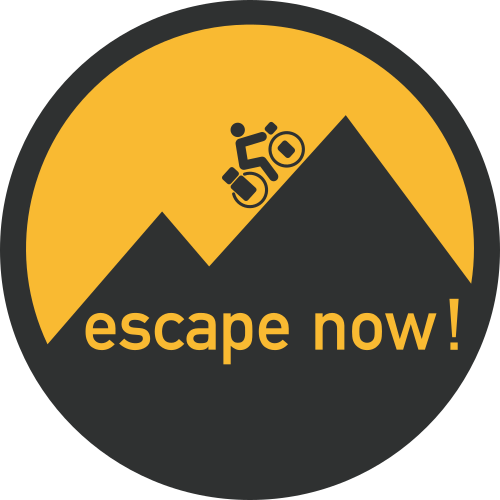

Leave a Reply